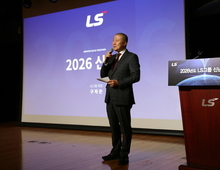(August 15, 2024) The controversy surrounding the leak of the Dresden speech, which was a central element in the impeachment of President Park Geun-hye, has been disproven according to the National Forensic Service's (NFS) evaluation report. This revelation calls into question the court's conviction of former President Park for leaking official secrets and the Constitutional Court's ruling to remove her from office, potentially paving the way for a retrial.
On November 14, Media Watch submitted an opinion to the Appeals Court, referencing a detailed expert analysis from the National Forensic Service (dated November 21, 2017) regarding the “Choi Soon-sil Tablet.” The opinion challenged the claims made by JTBC and the prosecution, asserting that the accusations that Choi Seo-won (formerly Choi Soon-sil) viewed and revised the Dresden speech on the tablet were entirely false.
![On October 24, 2016, JTBC broadcasted a scoop related to the “Choi Soon-sil Tablet,” which included a report on the Dresden speech titled, "[exclusive] 44 speech speeches received before the official announcement, including top-secret documents related to the Dresden speech." This report had the greatest impact on the public perception.](http://www.mediawatch.kr/data/photos/20240936/art_17257441704741_e5158b.jpg)
Dresden Speech Controversy: The Key Factor Behind Park Geun-hye's Impeachment
The most pivotal story in JTBC's "state affairs manipulation" scoop revolved around then-President Park Geun-hye's March 2014 speech in Dresden, Germany, titled “Initiative for Peaceful Unification on the Korean Peninsula.” JTBC reported that Choi Soon-sil was involved in viewing and revising the top-secret speech on a tablet the day before its delivery.
Prosecutors launched an investigation and prosecution based purely on JTBC’s reports, leading to former President Park Geun-hye's conviction for leaking official secrets. The Constitutional Court cited the leaked speech as a key factor in Park’s impeachment, arguing that by allowing a private citizen to interfere in state affairs and access confidential speeches in advance, the president had demonstrated no intention of upholding the Constitution.
It is no exaggeration to say that the court's and Constitutional Court's judgments essentially determine whether Choi Soon-sil viewed and revised the Dresden speech through the “Choi Soon-sil Tablet.” If it is proven that these claims are false, former President Park Geun-hye will have a solid basis for requesting a retrial.
Through an appeal opinion, which incorporates the latest developments in the Dresden speech story, MediaWatch confirmed that "it is entirely untrue that Choi Soon-sil viewed and revised the Dresden speech via the tablet. These claims are clearly false."
![The text of the Constitutional Court's March 10, 2017, ruling (Declaration 2016 Constitutional Na1 Decision [Impeach the President (Park Geun-hye)] [Constitution Collection 29-1, 1]) does not explicitly mention the Dresden speech, but the court de facto considered the leak of the Dresden speech as one reason for President Park Geun-hye's removal.](http://www.mediawatch.kr/data/photos/20240936/art_17257442195111_f903b3.png)

Dresden speech controversy has been disproven by the National Forensic Service
Media Watch stated in its opinion that "the prosecution's claims that Choi Soon-sil viewed the 'Dresden speech file' through the 'Choi Soon-sil Tablet' and that Choi Soon-sil viewed the file based on Jeong Ho-seong's statements as if there is video evidence of Choi conducting these activities is untrue."
The opinion further argued that “the prosecution's claim that Choi Soon-sil viewed the ‘Dresden speech file’ through the ‘Choi Soon-sil tablet’ is merely an inference. The prosecutors assumed that Choi was using the tablet at the time, but an alternative inference—that Choi did not view the file—is also plausible. If this counter-inference is more reasonable, the prosecution's inference should be rejected.”
The evidence presented by MediaWatch to refute claims that Choi Soon-sil viewed and revised the Dresden speech file is the National Forensic Service’s expert report dated November 21, 2017. This report, prepared by Researcher Shim Kyu-seon, was submitted to the court in a prior trial related to Choi Soon-sil (Seoul Central District Court 2016 Gohap 1202).

JTBC and Prosecutors Fabricated 'Dresden Speech File' Download Record as a Viewing Record
According to the National Forensic Service report, there is indeed a record of the Dresden speech file being downloaded onto the Choi Soon-sil Tablet the day before former President Park Hye's Dresden speech. However, the critical issue is not whether a download record exists but whether there is a record of the file being “viewed” on the tablet—an assertion made by the prosecution in their indictment.
MediaWatch emphasized that “It is certain that an unidentified ‘Choi Soon-sil tablet user’ received an email with the ‘Dresden speech file’ attached and downloaded the file, as officially confirmed by the National Forensic Service. But Choi Soon-sil was not involved in this process, and the NFS has never officially confirmed that any unknown user of the Choi Soon-sil tablet had viewed the Dresden speech file.”
Despite the National Forensic Service never confirming this, JTBC reported the story as fact, and the prosecution made indictments that diverged significantly from the NFS findings. They misrepresented the situation by altering the fact that an unidentified Choi Soon-sil tablet user downloaded the Dresden speech file to claim that Choi Soon-sil viewed the file. MediaWatch asserts that this discrepancy amounts to a fabricated report and indictment.


![Despite the significant difference in meaning between “received the ‘Dresden speech file’" and “received and viewed the ‘Dresden speech file,’" JTBC ignored this distinction and incorrectly replaced the former with the latter in their October 24, 2016, scoop report. Picture of JTBC’s report titled "[exclusive] 44 speech speeches received before the official announcement, including top-secret documents related to the Dresden speech."](http://www.mediawatch.kr/data/photos/20240936/art_17257444345671_8bcc70.jpg)

The “Choi Soon-sil Tablet User” was not involved in modifying the Dresden Speech File
The prosecution's case against MediaWatch does not include any allegations that Choi Soon-sil modified the Dresden speech file. In fact, the prosecution acknowledges that there is no evidence to support whether the speech text was revised or not.
According to the NFS's report, the “Choi Soon-sil Tablet” does not have a document modification program installed. Additionally, there were no traces of any online applications that could have been used to revise the document.
The Dresden speech file was uploaded on a shared account (kimpa2014@gmail.com) used by former President Park Geun-hye's aides and government officials as a bulletin board. Based on the email history from this shared account provided by the NFS, the file was uploaded the day before Park's speech in Dresden. The email containing the file was sent and received over a period of more than two hours, during which the speech was revised multiple times by the person leading the revision on this shared account.


The problem is that the “Choi Soon-sil Tablet” has no record of viewing or downloading the “revised Dresden speech file” with the updated content. Therefore, based on the NFS's report, MediaWatch concluded that the unidentified “Choi Soon-sil Tablet user” did not engage with or pay attention to the newly created “revised Dresden speech file” uploaded to the shared account.
MediaWatch asserted that the unidentified “Choi Soon-sil tablet user” is likely Kim Han-soo, a former Blue House official who activated the tablet PC. Kim Han-soo likely accompanied then-President Park Geun-hye on her visit to Dresden on March 27-28, 2014, during his Blue House tenure. Given that he was responsible for public relations, he would have had access to the shared account (kimpa2014@gmail.com) but would not have been involved in the actual editing of the file.
The record of the Dresden speech text suggests that the “Choi Soon-sil tablet user” is Kim Han-soo
MediaWatch argued that the claim of Choi Soon-sil's involvement in revising the “Dresden speech file” is based on the assumption that: 1. “Choi Soon-sil” is the same as 2. “Choi Soon-sil tablet user,” and 3. “The person who led the revision of the Dresden speech file under the shared account (kimpa2014@gmail.com).” However, neither (1) = (2) nor (2) = (3) has been proven true.
MediaWatch also contended that the falsity of (1) = (2) has been confirmed based on several factors, including the timing of the L-shaped lock pattern setting and the tablet PC's activation contract.
In the opinion filed to the court, MediaWatch noted that “the newly revealed facts concerning the “Choi Soon-sil Tablet” and the Dresden speech file, as highlighted by existing NFS materials, will inevitably serve as grounds for a retrial of former President Park Geun-hye regarding her impeachment by the Constitutional Court and her conviction for leaking official secrets. These facts will also provide a clear basis for acquittal for Media Watch.”

Grounds for Park Geun-hye's Impeachment-Related Retrial Clearly Established
MediaWatch stated that while the phrase "'giving the court a chance to correct itself' may sound unconventional, it is not unreasonable in a case of such significance." The company has requested that the court reopen the evidence investigation and consider calling researcher Shim Kyu-seon, who prepared the National Forensic Service report dated November 21, 2017, as a witness.
The Tablet Appeal trial is scheduled to hold its 13th session, which was postponed once, at 3:30 p.m. on August 22 at the Seoul Central District Court, West Wing, Courtroom 422.


 1
1
 2
2
 3
3
 4
4
 5
5
 6
6
